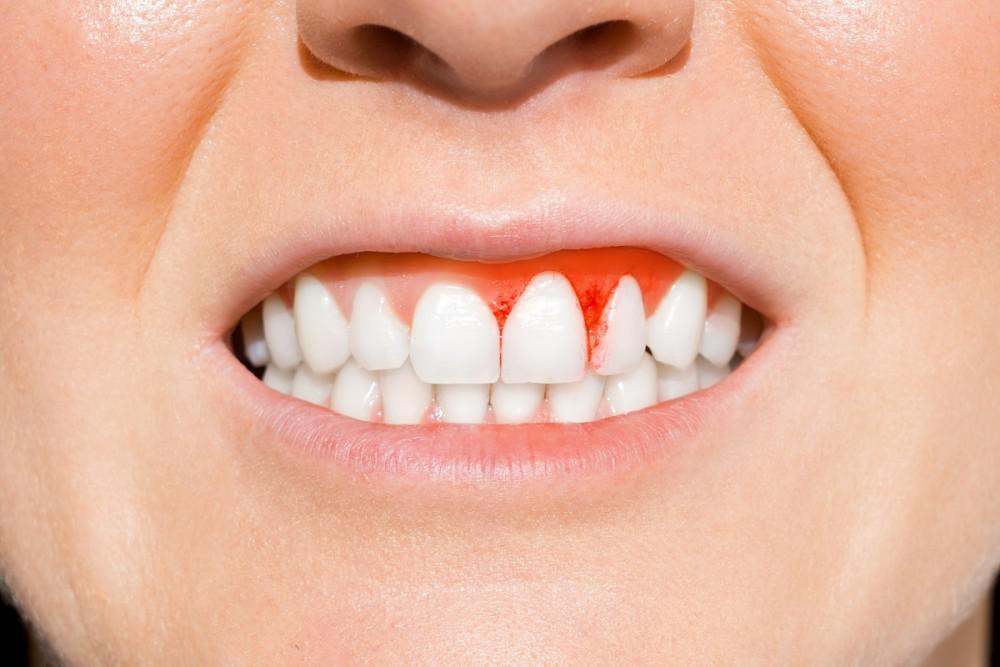
11
Aug
Easy Steps That Can Help Prevent Gum Disease

Gum disease is an infection that affects the gums and bones that support your teeth. It happens because of the accumulation of plaque on teeth. Plaque is a combination of bacteria and toxins that, if not removed daily, can cause infections in the gums and teeth. In the advanced stages of gum disease, germs can infect the gum tissue and jawbone.
Gingivitis and periodontitis are the major gum diseases that harm the jawbone and gums. The first phase of gum disease is also known as gingivitis. It causes your gums to become inflammatory, painful, red, swelling, and prone to bleeding when you have gingivitis. Gum disease is scary. However, it is preventable if you follow these easy steps to help prevent gum disease.
Steps to prevent gum diseases
Here are some measures that you can take to maintain healthy gums.
- Floss:
Flossing a minimum of twice a day allows you to eliminate particles stuck between your teeth. It cleans from places that your toothbrushes can’t reach. Perform it after lunchtime, after another meal, at bedtime, in the morning, or any other time.
- Schedule routine dental cleanings:
Visit your dentist often; this way, they can identify warning indications of gum disease, also known as gingivitis. Visiting your dentist often can allow for early treatment before problems worsen. Only a cleaning process by the dentist can get rid of plaque. Brushing, flossing, and routine dental cleanings can help prevent and treat gingivitis.
- Brush your teeth twice a day:
After having every meal, rinse your mouth. This process removes food particles stuck between your teeth and gums. Also, brush your tongue because it may contain bacteria. Your brushing should be comfortable, and your toothbrush should have gentle bristles.
- Use toothpaste with fluoride:
Many toothpaste brands claim that they can prevent gingivitis, improve foul breath, and correct the color of teeth. Moreover, it’s entirely up to you to use toothpaste with flavor and color. Make sure to select fluoride-containing toothpaste.
- Use a pharmaceutical mouthwash:
Using a pharmaceutical mouthwash is not a replacement for brushing or flossing. Still, additional action is rinsing your mouth after brushing your teeth, which can help kill bacteria and prevent odor. Look for the medicinal seal, indicating that the medication is reliable and safe. Whether you brush, floss, or rinse, make sure to use excellent quality products.
- Watch what you eat:
A balanced diet is the most significant factor in minimizing gum disease. To avoid gum disease, prevent sweetened meals and beverages since they might harm your gums and damage your teeth.
A diet that contains all types of nutrients, vitamins, and minerals considered a healthy diet can help you prevent various long-term diseases, including gum disease, by boosting your immune.
- Drink plenty of water:
Both avoiding dental problems and improving general health require keeping your body hydrated. Drinking an appropriate amount of water increases saliva production. According to your age and body physique, ensure you consume the necessary water daily.
- Stop using tobacco:
Avoid using tobacco products because they are highly damaging to your gums. Gum disease is one of the many health issues linked with tobacco use and smoking. Avoiding tobacco, nicotine, and electronic products is preferable to maintaining good oral hygiene.
Final Thoughts
Daily brushing, flossing, and mouth washing eliminate plaque and keep gums healthy. Six-month dental appointments are also important for a healthy mouth. If you notice any signs of gum disease, including soreness, swollen or red gums, or gums that bleed easily, consult your dentist immediately.
Contact your Fairfield dentist, Dr. Cheng Zhu, at Freedom Family Sedation Dentistry to learn more about gum disease.
Share this Article
 Connect with Dr. Cheng Zhu on Twitter
Connect with Dr. Cheng Zhu on Twitter
Dr. Cheng Zhu - Freedom Dental
Cheng Zhu, DMD, leads Fairfield Dental and offers safe and effective services that support optimal comfort, healing, and an exceptional patient experience.Whether you need a crown, emergency care, implants, an impacted wisdom tooth extraction, or full-mouth rehabilitation, Dr. Zhu can help. A former pharmacist who can support your oral and overall health, he is one of the few dentists licensed in California to provide intravenous sedation to ease dental anxiety.
Dr. Zhu is trained and equipped to provide many advanced surgical options, eliminating the need to refer patients to other experts. Fairfield, California, patients trust the caring, compassionate, and affordable family dental care the team offers.
